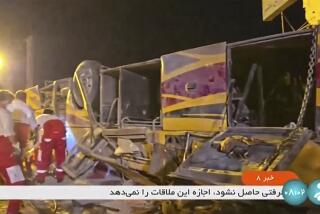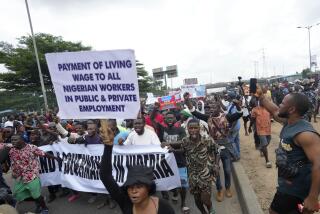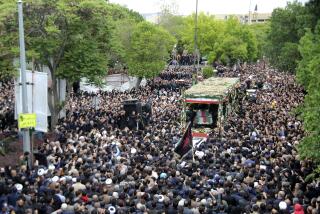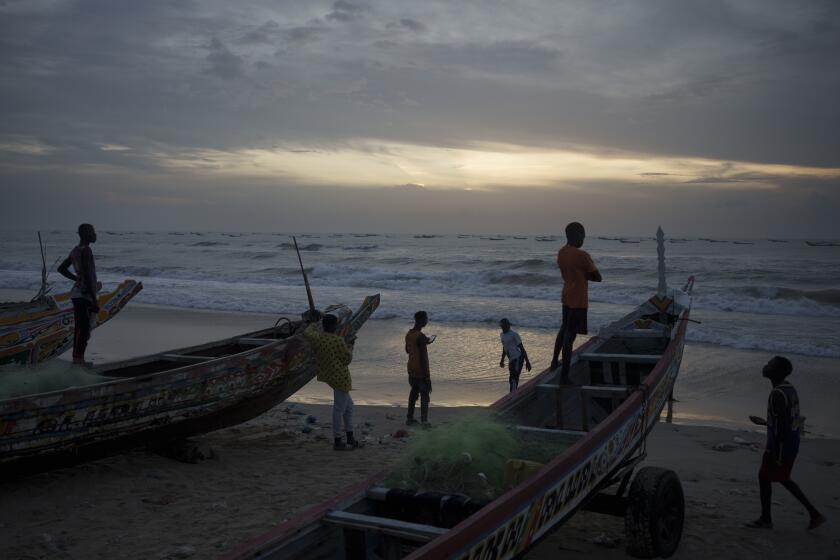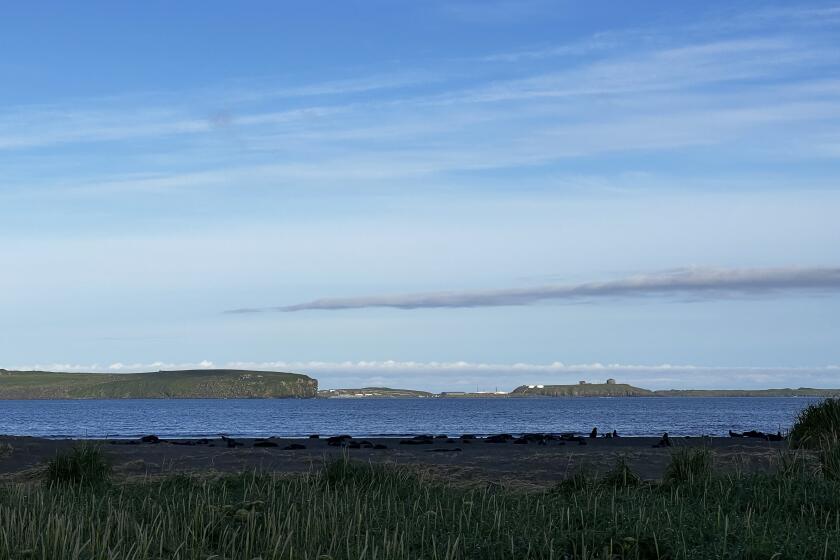40 Iraqi protesters slain in 24 hours as violence spirals
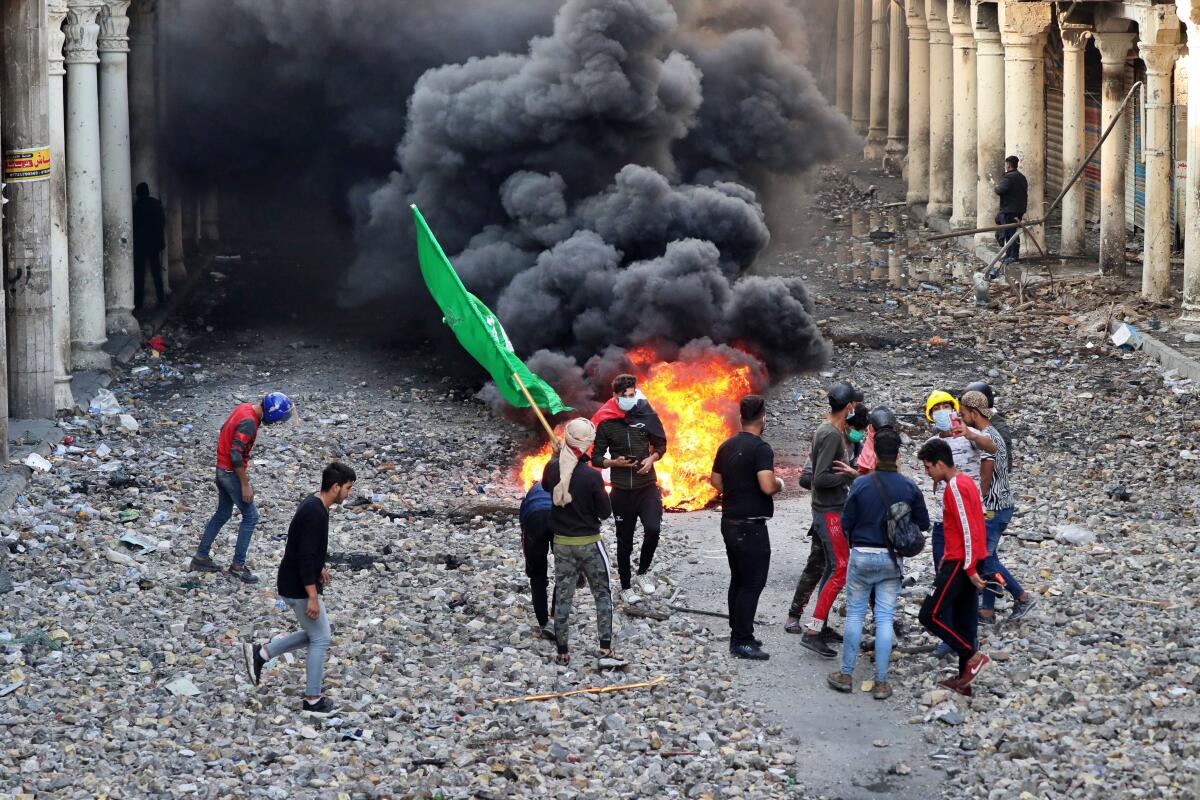
Security forces shot dead 40 anti-government protesters during 24 hours of bloodshed amid spiraling violence in the Iraqi capital and in the country’s south, security and medical officials said Thursday, one day after an Iranian consulate was torched.
Iran condemned the burning of its consulate in the holy city of Najaf as violence continued into the night across southern Iraq, where security forces had killed 36 protesters and wounded 245 since Wednesday evening, the officials said. Four additional protesters were shot dead in Baghdad, the capital. The officials spoke on condition of anonymity in line with regulations.
Police and military forces were deployed across key oil-rich provinces to reopen roads closed off by demonstrations.
The escalating violence and heavy response against demonstrators by a largely Iranian-backed government threatened to intensify tensions, especially if efforts to implement electoral and anti-corruption reforms fail to placate protesters.
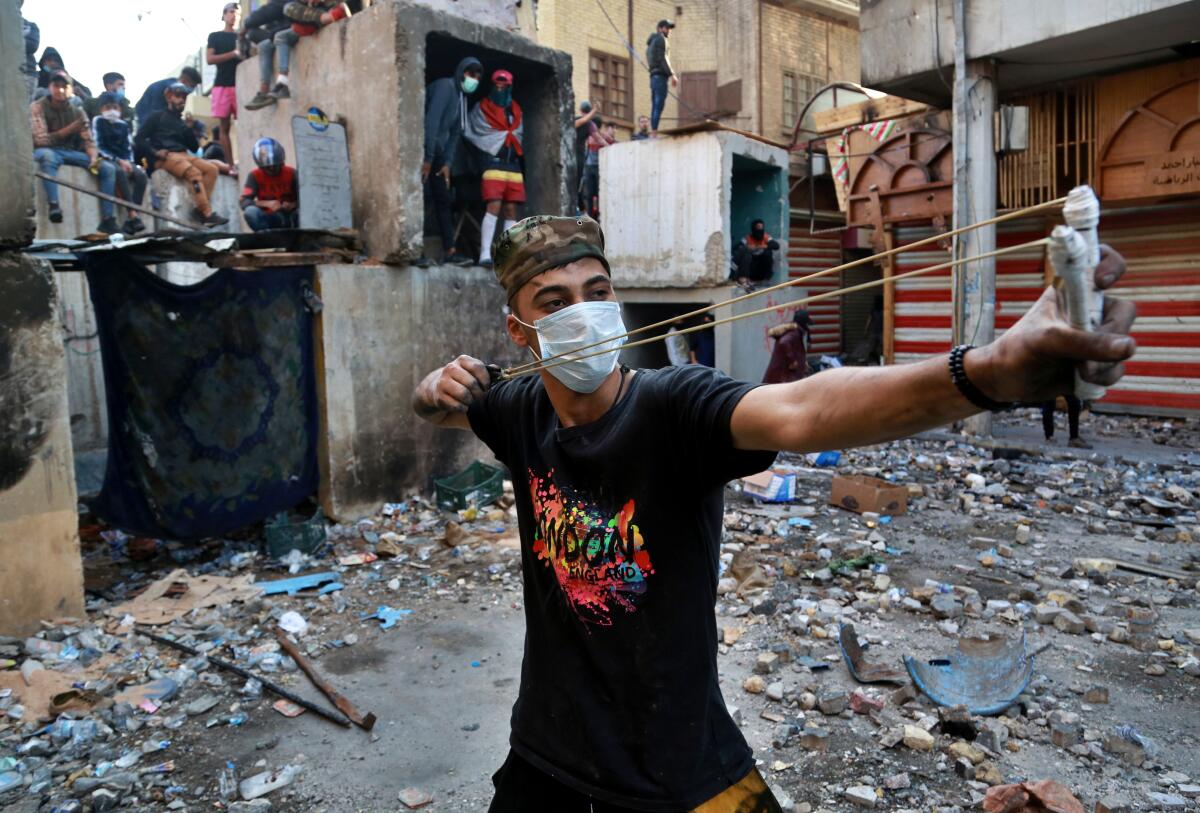
Crisis committees were created to enhance coordination between Prime Minister Adel Abdul Mahdi and governors in provinces affected by the protests “for the importance of controlling security and enforcing the law,” said a statement from the joint operations command.
Security forces shot dead four protesters in Baghdad and wounded 22 when they tried to cross the important Ahrar Bridge leading to the nearby Green Zone, the heavily fortified seat of Iraq’s government. Protesters occupy parts of the Jumhuriya, Sanak and Ahrar bridges, all of which lead to or near the fortified area.
In Najaf, five protesters were fatally shot and 32 wounded when security forces opened fire to prevent them from torching a central mosque named after the father of a prominent political leader, officials said.
The deaths came after a day after protesters burned Iran’s consulate in Najaf. It was one of the worst attacks targeting Iranian interests in the country since the anti-government protests erupted two months ago.
The unrest in Iraq began Oct. 1, when thousands took to the streets in Baghdad and the predominantly Shiite south. The largely leaderless movement accuses the government of being hopelessly corrupt and has also decried Iran’s growing influence in Iraqi state affairs.
At least 350 people have been killed by security forces, which routinely use live ammunition and tear gas to disperse crowds.
Iran has called for a “responsible, strong and effective” response to the burning of its consulate, Abbas Mousavi, a Foreign Ministry spokesman, said in statements to the official Islamic Republic News Agency.
Iraq’s Ministry of Foreign Affairs condemned the attack, saying it was perpetrated by “people outside of the genuine protesters” seeking to harm relations between the countries.
One demonstrator was killed and 35 wounded when police fired live ammunition in a failed effort to prevent protesters entering the consulate building. Once inside, the demonstrators removed the Iranian flag and replaced it with an Iraqi one, said a police official who spoke on condition of anonymity in line with regulations.
A curfew was imposed in Najaf after the attack on the consulate. Security forces were heavily deployed around main government buildings and religious institutions Thursday morning.
Najaf province is the headquarters of the country’s Shiite religious authority led by Grand Ayatollah Ali Sistani. He has been largely supportive of protester demands, siding with them by repeatedly calling on political parties to implement serious reforms.
Influential Shiite cleric Muqtada Sadr called on Iraq’s government to resign “immediately to stop the bloodletting,” while imploring protesters to maintain the peace.
“If the government does not resign, this will be the beginning of the end of Iraq,” he warned.
More to Read
Sign up for Essential California
The most important California stories and recommendations in your inbox every morning.
You may occasionally receive promotional content from the Los Angeles Times.
